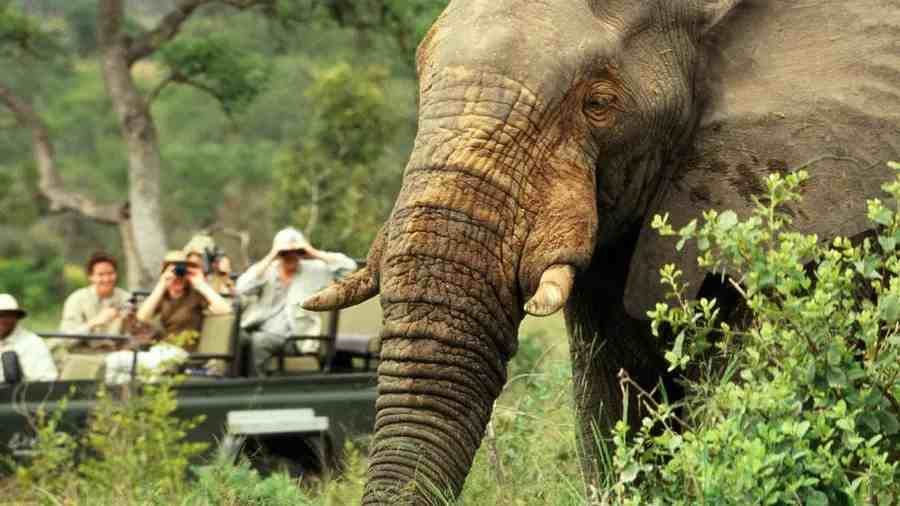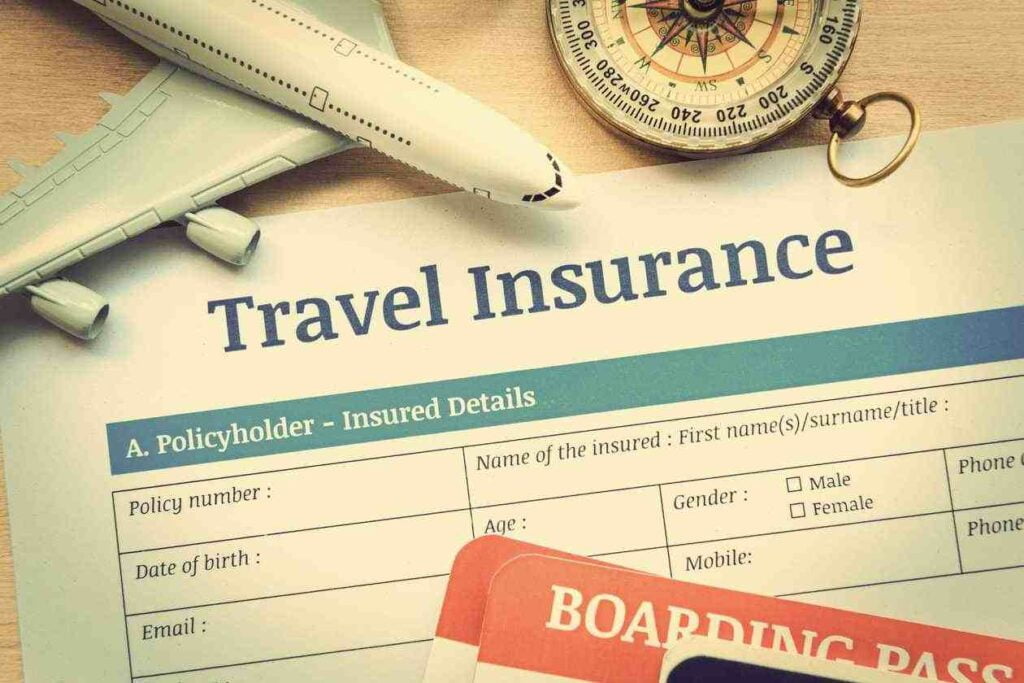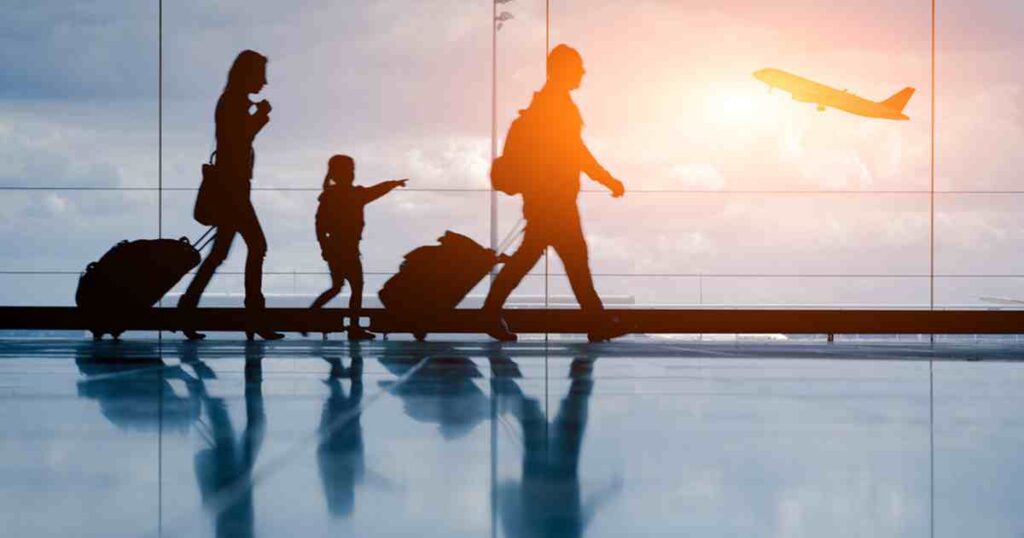Embarking on a safari is an exhilarating experience, filled with the thrill of close encounters with wildlife, breathtaking landscapes, and the raw beauty of nature. However, it also comes with its own set of unique risks and challenges. One such challenge is ensuring you have the right travel insurance coverage for your safari adventure. This article will delve into the importance of having specific travel insurance for a safari, the unique risks associated with such a trip, and how the right insurance can provide peace of mind during your journey. Whether you’re a seasoned traveler or planning your first safari, this article will provide valuable insights to help you prepare for your adventure. So, let’s dive in and explore the wild world of safari travel insurance.
What is Safari Travel Insurance?

Safari Travel Insurance is a type of travel insurance that is specifically designed to cover the unique risks associated with going on a safari. While regular travel insurance provides coverage for common travel-related issues like trip cancellation, lost luggage, and medical emergencies, Safari Travel Insurance goes a step further to address the specific challenges that might arise during a safari.
Here’s why Safari Travel Insurance is different and necessary:
- Coverage for Medical Emergencies: Safari travel insurance typically includes coverage for medical emergencies, including treatment for injuries sustained during wildlife encounters or accidents in remote areas. This coverage may extend to medical evacuation and repatriation to ensure access to adequate medical care.
- Trip Cancellation and Interruption: Safari travel insurance may provide coverage for trip cancellation or interruption due to unforeseen circumstances such as illness, injury, or natural disasters. This can help travelers recoup non-refundable expenses such as safari lodge reservations or tour deposits.
- Coverage for Adventure Activities: Since safaris often involve adventurous activities such as game drives, hot air ballooning, or hiking, safari travel insurance may include coverage for these activities. This can help protect travelers in case of accidents or injuries while participating in safari-related activities.
- Equipment and Gear Coverage: Safari travel insurance may offer coverage for personal belongings, including expensive equipment such as cameras, binoculars, or camping gear. This coverage can be essential in case of theft, loss, or damage to valuable items during the safari.
- Personal Liability Coverage: Safari travel insurance may include personal liability coverage, which protects travelers in case they accidentally cause property damage or injure someone else while on safari.
- Emergency Assistance Services: Safari travel insurance often includes emergency assistance services such as 24/7 helplines and coordination of medical care and evacuation. This can be crucial in remote safari destinations where access to medical facilities may be limited.
- Exclusions and Limitations: Like any insurance policy, safari travel insurance may have exclusions and limitations. It’s essential for travelers to carefully review the policy details to understand what is covered and what is not, especially regarding pre-existing medical conditions, high-risk activities, or policy exclusions.
It’s important to note that every major travel insurer will insure your Safari, so you do not need a specific policy. However, it’s crucial to ensure that the policy you choose provides adequate coverage for the unique risks associated with a safari.
Coverage Options
Safari Travel Insurance offers several types of coverage to address the unique risks associated with a safari adventure. Here are some key types of coverage that it might offer:
- Medical Coverage: This covers medical expenses incurred due to illness or injury during the safari, including hospital stays, doctor’s visits, prescription medications, and emergency medical evacuation to a facility with appropriate care.
- Emergency Evacuation and Repatriation: This covers the cost of emergency evacuation to the nearest appropriate medical facility or repatriation to your home country in case of serious illness or injury that cannot be adequately treated locally.
- Trip Cancellation and Interruption: This reimburses you for prepaid, non-refundable trip expenses if you need to cancel or cut short your safari due to covered reasons, such as illness, injury, death of a family member, or natural disasters.
- Travel Delay: This provides reimbursement for additional expenses incurred due to unexpected travel delays, such as accommodation, meals, and transportation, if you’re delayed for a certain amount of time (usually specified in the policy).
- Lost or Delayed Baggage: This covers the cost of replacing essential items if your baggage is lost, stolen, or delayed during your safari trip. It typically includes reimbursement for clothing, toiletries, and other necessities.
- Personal Liability: This covers legal expenses and damages if you accidentally injure someone or damage property during your safari. It’s particularly important in wildlife-rich environments where encounters with animals or local communities are possible.
- Adventure Sports Coverage: This extends coverage to adventurous activities commonly associated with safaris, such as game drives, bush walks, hot air ballooning, and white-water rafting. It ensures that medical expenses and other costs related to these activities are covered.
- Equipment and Gear Coverage: This reimburses you for the repair or replacement of specialized equipment and gear used during your safari, such as cameras, binoculars, camping gear, and electronic devices.
- Pre-existing Medical Conditions Coverage: Some policies offer coverage for pre-existing medical conditions, provided certain criteria are met. It’s important to carefully review the terms and conditions to ensure your specific medical needs are covered.
By understanding these different types of coverage, travelers can choose a safari travel insurance policy that provides comprehensive protection against the various risks and uncertainties they may encounter during their safari adventure.
How to Choose the Right Safari Travel Insurance
Choosing the right Safari Travel Insurance involves careful consideration of several factors. Here are some tips to help you make an informed decision:
- Understand Your Needs: Identify what you need from your travel insurance. This could include coverage for medical emergencies, trip cancellation, lost luggage, etc.
- Research Providers: Look into different insurance providers and their reputation. Check customer ratings and reviews to get an idea of their service quality.
- Check Coverage Details: Make sure the policy covers all the things you’re most concerned about. Not every travel insurance covers safari because this is a specialized form of insurance that offers tailored coverage to address the unique risks and needs associated with going on a safari.
- Read the Fine Print: It’s crucial to read the policy’s fine print and understand the coverage limits and exclusions before purchasing travel insurance.
- Consider the Cost: Compare prices and coverage limits from different providers to find the best value for your money.
- Customer Service: Consider the quality of the customer service. You want an insurer who will be responsive and helpful if you need to make a claim.
- Check for Safari-Related Activities: Confirming that your insurance policy encompasses coverage for these activities, as well as potential emergency evacuations that may be required, is advisable.
Do You Need Travel Insurance for Domestic Travel?
Remember, every major travel insurer will insure your Safari, so you do not need a specific policy. However, it’s crucial to ensure that the policy you choose provides adequate coverage for the unique risks associated with a safari.
Policy Exclusions and Limitations

When discussing policy exclusions and limitations for safari travel insurance, it’s essential to provide clarity on what may not be covered by the policy. Here are some common exclusions and limitations to address:
- Pre-existing Medical Conditions: Most travel insurance policies exclude coverage for pre-existing medical conditions unless specifically stated otherwise or an additional premium is paid.
- High-Risk Activities: Some policies may exclude coverage for activities deemed high-risk, such as bungee jumping, skydiving, or certain extreme sports. Safaris may involve activities like hiking, off-road driving, or wildlife encounters, so it’s crucial to check if these are covered or excluded.
- Alcohol or Drug-related Incidents: Insurance policies often exclude coverage for accidents or incidents resulting from the consumption of alcohol or illegal drugs.
- Travel to High-risk Areas: Certain destinations may be considered high-risk due to political instability, civil unrest, or health risks. Travel insurance policies may exclude coverage for destinations under travel advisories or warnings issued by government authorities.
- Loss of Valuables: While travel insurance typically provides coverage for lost or stolen luggage, there may be limitations on coverage for expensive items such as jewelry, electronics, or camera equipment.
- Unattended Belongings: Insurance policies may not cover loss or theft of belongings left unattended or unsupervised in public areas.
- Extreme Weather Events: While travel insurance typically covers trip cancellations or interruptions due to unforeseen events such as natural disasters, coverage may be limited or excluded for extreme weather conditions that are known risks of the destination, such as hurricanes or monsoons.
- Terrorism and Acts of War: Some insurance policies may exclude coverage for incidents related to terrorism, acts of war, or political unrest.
- Failure to Obtain Necessary Documentation: Travel insurance may not cover expenses incurred due to the failure to obtain necessary travel documentation, such as passports, visas, or vaccination certificates.
Cost Considerations
When considering the cost of travel insurance for a safari, it’s important to address several factors that can affect the price of the policy. Here are some key cost considerations to include:
- Coverage Amount: The level of coverage you choose will significantly impact the cost. Higher coverage limits for medical expenses, evacuation, and trip cancellation will result in a higher premium.
- Trip Cost: The total cost of your trip is a major factor in determining the insurance premium. More expensive trips will generally have higher insurance costs since the potential claim amount is greater.
- Length of Trip: The duration of your safari will also affect the cost. Longer trips typically require higher premiums due to the extended period of risk.
- Destination Risks: Traveling to regions with higher medical or political risks can increase insurance costs. Insurers may charge more for destinations with known health risks or political instability.
- Age and Health of Travelers: Premiums can be higher for older travelers or those with pre-existing health conditions. Some insurers may require a medical assessment before offering coverage.
- Type of Safari Activities: Engaging in high-risk activities like hot air balloon rides or deep jungle treks may increase the cost of insurance. Make sure these activities are covered and check if additional premiums apply.
- Policy Add-Ons: Optional extras like ‘Cancel For Any Reason’ coverage can add to the cost. This add-on provides more flexibility but can increase the premium by about 50%.
- Insurance Provider: Costs can vary between providers based on their underwriting criteria and the benefits offered.
- Discounts: Some insurers offer discounts for various reasons, such as purchasing a policy early, insuring multiple travelers, or being a repeat customer. Check if any discounts are applicable.
By covering these cost considerations, you can budget your safari travel insurance and choose a policy that offers the best balance of cost and coverage.
FAQs
Q 1. Are there any age restrictions for purchasing Safari Travel Insurance?
Ans. Most travel insurance providers have a minimum age requirement for purchasing insurance coverage, usually set at 18 years old. However, some travel insurance plans may have an upper age limit, typically applying to travelers over the age of 70 or 80.
Q 2. What should I do if I need to make a claim on my Safari Travel Insurance?
Ans. If you need to make a claim on your Safari Travel Insurance, you should contact your insurance provider as soon as possible after the incident. You will then be given a claim form to fill out. Once you have completed the form, you will need to submit it to your provider along with any supporting documentation.
Q 3. Can I get a refund on my Safari Travel Insurance if I cancel my trip?
Ans. Yes, getting a travel insurance refund is possible, depending on when you cancel the policy. To qualify for a premium refund, most insurance companies require the policy to be canceled during the review period outlined in the policy terms.
Q 4. What kind of documentation do I need to provide when purchasing Safari Travel Insurance?
Ans. When purchasing Safari Travel Insurance, you may need to provide documentation such as medical reports and receipts.
Q 5. How far in advance should I purchase my Safari Travel Insurance?
Ans. It’s best to purchase travel insurance as soon as you book your trip, to ensure you’re covered in case of unforeseen events before your departure.
Conclusion
In conclusion, Safari Travel Insurance is a specialized form of travel insurance designed to address the unique risks associated with a safari adventure. It provides coverage for a variety of situations that may not be covered under a standard travel insurance policy, such as injuries from wildlife encounters, emergency medical evacuation from remote locations, and loss or damage of specialized equipment.
Choosing the right Safari Travel Insurance involves understanding your needs, researching providers, checking coverage details, reading the fine print, considering the cost, and evaluating the quality of customer service. It’s crucial to ensure that the policy you choose provides adequate coverage for the unique risks associated with a safari.
Remember, every major travel insurer will insure your Safari, so you do not need a specific policy. However, it’s crucial to ensure that the policy you choose provides adequate coverage for the unique risks associated with a safari.

Join Shubham, a finance enthusiast with a mission to empower readers with the knowledge and tools to achieve financial freedom. Discover smart financial advice and unlock your financial potential.


